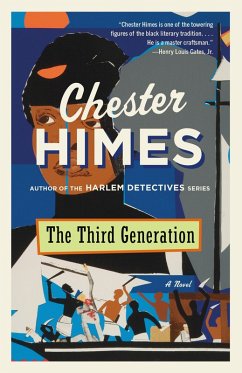
The Spenders: A Tale of the Third Generation (eBook, ePUB)
Exploring Wealth, Class, and Morality in Gilded Age America
Versandkostenfrei!
Sofort per Download lieferbar
0,49 €
inkl. MwSt.
Weitere Ausgaben:

PAYBACK Punkte
0 °P sammeln!
In 'The Spenders: A Tale of the Third Generation,' Harry Leon Wilson offers a penetrating exploration of the American Dream through the lens of familial legacy and moral decay. Set against the backdrop of early 20th-century America, the novel employs a rich, satirical literary style that blends humor with critical reflections on class and consumerism. Wilson's intricate characterizations and sharp dialogue illuminate the lives of the affluent but morally ambiguous Spencer family, whose extravagant lifestyle becomes a metaphor for the societal excesses of their era. The blending of social comme...
In 'The Spenders: A Tale of the Third Generation,' Harry Leon Wilson offers a penetrating exploration of the American Dream through the lens of familial legacy and moral decay. Set against the backdrop of early 20th-century America, the novel employs a rich, satirical literary style that blends humor with critical reflections on class and consumerism. Wilson's intricate characterizations and sharp dialogue illuminate the lives of the affluent but morally ambiguous Spencer family, whose extravagant lifestyle becomes a metaphor for the societal excesses of their era. The blending of social commentary and character-driven narrative situates the novel within the broader context of American literature that critiques materialism and its impact on personal identity and familial relationships. Harry Leon Wilson, an acclaimed writer of his time, was born in 1867 and experienced firsthand the rapid changes in American society. His diverse background in journalism and literature, coupled with his keen observations of the cultural shifts during the Gilded Age, uniquely positioned him to tackle themes of opulence and moral ambiguity in 'The Spenders.' Wilson's experiences in a nation grappling with the consequences of wealth undoubtedly informed his portrayal of the Spencers, making his critique of the era not only instructive but deeply personal. I highly recommend 'The Spenders' to readers who appreciate a blend of humor and social critique, as it provides a poignant reflection on the excesses of wealth and the implications of consumerism. Wilson's work remains relevant today, resonating with contemporary readers who navigate their own cultural landscapes marked by similar challenges regarding identity, morality, and the pursuit of happiness.
Dieser Download kann aus rechtlichen Gründen nur mit Rechnungsadresse in A, B, BG, CY, CZ, D, DK, EW, FIN, F, GR, H, IRL, I, LT, L, LR, M, NL, PL, P, R, S, SLO, SK ausgeliefert werden.













